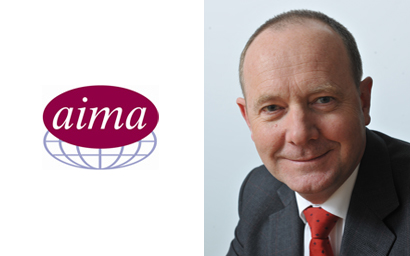Andrew Baker, chief executive officer at the Alternative Investment Management Association (AIMA) talks about hedge funds and their effect on financial stability.
You may recall that back in early 2009, at an important moment for our industry, the Alternative Investment Management Association came out in support of several measures including improved transparency to regulators and the registration/ authorisation of all hedge fund managers globally. This made clear that the hedge fund industry was neither opaque nor unco-operative, and it helped to create a spirit of constructive engagement that marked our subsequent discussions with policymakers.
We recognised that, by having managers register with and report to the likes of the Securities and Exchange Commission and the Financial Services Authority (FSA), more data would be available to allow better monitoring and assessment of markets. As such, hedge funds would be able to contribute to a more effective global systemic risk monitoring system.
However, we also were quick to add an important caveat – I recall Todd Groome, our chairman, making this point in an article in early 2010 – that it was important that managers were not forced to supply too much unnecessary information for regulators to have to process. Todd argued: “The data gathered need to be relevant to the risks we seek to mitigate, and it must be understood that neither the public nor the private sector can draw on infinite resources”.
I am reminded of this as we wait to hear whether any hedge fund firm will be designated as a “systemically important financial institution” (Sifi), and thus subject to further regulatory scrutiny, including additional oversight by the Federal Reserve. As the Financial Stability Oversight Council in the United States considers and is expected to clarify soon the criteria by which it will determine which non-bank financial companies may be deemed systemically important, it is our strong contention that no hedge fund firm today should be designated as a Sifi.
We believe that no single hedge fund firm today is sufficiently large, leveraged, complex or interconnected that its failure or financial stress would cause a “market disruption sufficient to destabilise the financial system” – the basic definition of a Sifi. It should be remembered that the FSA has stated that, based on its risk reporting framework, none of the large hedge funds it examines (currently) poses “a significant systemic risk to the financial system”. It is also significant that the FSA’s most recent hedge fund survey found that major hedge funds do not pose a potentially destabilising credit counterparty risk, and that the levels of leverage employed remain relatively low, which in the words of the FSA suggests a “contained level of risk”.
The key issue, of course, is whether a hedge fund firm is “too big to fail”. Casting our minds back to 2008, more than 1,400 individual hedge funds were closed or were liquidated, almost all in an orderly manner. It has been acknowledged by many regulators and policymakers that those closures had virtually no impact on hedge fund firms’ counterparties nor the stability of the financial system at large. This difficult period provided a very up-to-date and significant stress test concerning hedge fund risks to markets.
Safe to fail, not fail-safe
Sebastian Mallaby of the Council on Foreign Relations has a memorable way of describing this – he says that hedge funds are “safe to fail, even if they are not fail-safe”. We are not suggesting that hedge funds do not fail, only that when they do, they do not bring the rest of the financial system crashing down with them.
Size matters in this debate. In our discussions with policymakers, we always stress that hedge funds collectively represent a relatively small group of extremely heterogeneous and often small businesses. The global hedge fund industry is dispersed – approximately 9,500 hedge funds manage a combined $2 trillion (€1.5 trillion) in assets, according to Hedge Fund Research – whereas a small number of financial institutions’ balance sheets are on their own much larger than the entire global hedge fund industry. Even their collective positions and exposures are not such that individual failures pose a risk to financial stability. And hedge fund firms employ significantly lower levels of leverage than banks and some other financial institutions.
Moreover, hedge fund activities do not typically contribute to pro-cyclical market dynamics; they tend to be contrarian or to look for market inefficiencies and, through their investment activities, they tend to make markets more efficient.
As such, hedge funds enhance diversity of market behaviour and thus contribute positively to financial stability. We hope that the FSOC and other authorities recognise this, and that common sense will prevail.
©2011 funds europe





